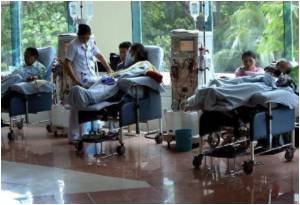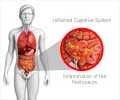In patients undergoing peritoneal dialysis, gastrointestinal (GI ) symptoms are proven to be more common than in patients with chronic renal failure having hemodialysis.

A research article to be published on June 14, 2010 n the World Journal of Gastroenterology addresses this question. The research team led by Professor Guo from the Nephrology department of Changhai Hospital, Second Military Medical University used the Gastrointestinal Symptom Rating Scale, which is a self-administered questionnaire, includes 15 items and uses a 7-grade Likert scale defined by descriptive anchors such that 1=none, 2=minor, 3=mild, 4=moderate, 5=moderately severe, 6=severe, and 7=very severe discomfort, to evaluate the presence of gastrointestinal symptoms in peritoneal dialysis patients. As various research groups have indicated a higher prevalence of gastrointestinal symptoms in patients undergoing peritoneal dialysis than in patients with chronic renal failure having hemodialysis, the article further investigates the possible correlated factors affecting the gastrointestinal symptoms in peritoneal dialysis patients by using multiple regression analysis.The prevalence of eating dysfunction, reflux and indigestion in peritoneal dialysis patients was 44.2%, 32.7%, 32.7%, respectively. A history of corticosteroid therapy and the number of all pills the patients took daily were positively correlated to GI symptoms, while residual renal Kt/V was negatively correlated to GI symptoms. These findings indicated that gastrointestinal symptoms in peritoneal dialysis patients were more correlated with chronic renal failure itself and other treatment-associated factors, but not with peritoneal dialysis-associated factors. Residual renal function is not only an index regarding the uremia itself but an index predicting complications. Iatrogenic factors were another aspect impacting the gastrointestinal symptoms in peritoneal dialysis patients, including the pre-dialytic therapy and adjuvant therapy during peritoneal dialysis.
Source-Eurekalert














